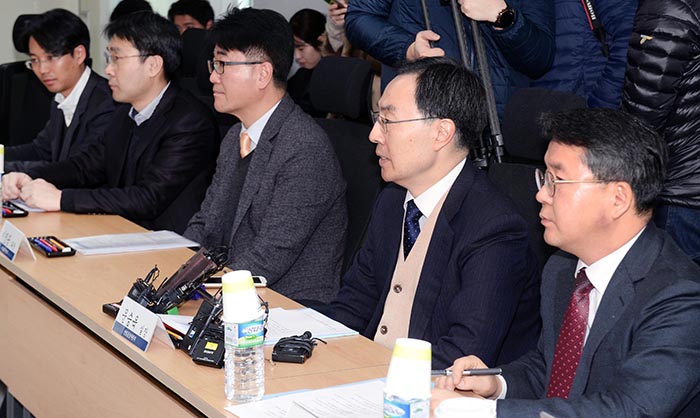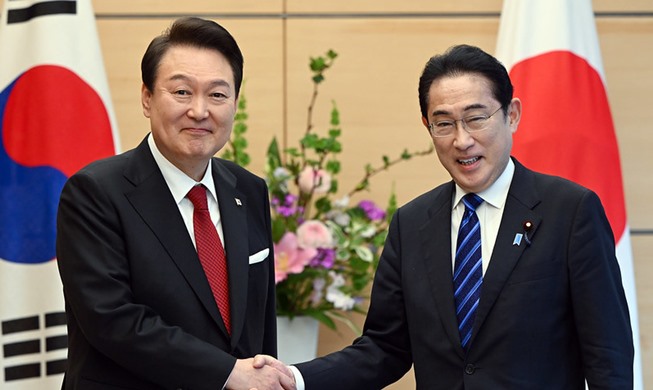-
 Korea.net's 24-hour YouTube channel
Korea.net's 24-hour YouTube channel- NEWS FOCUS
- ABOUT KOREA
- EVENTS
- RESOURCES
- GOVERNMENT
- ABOUT US

The Ministry of Trade, Industry and Energy (MOTIE) holds a meeting between public and private organizations on Jan. 26 following the U.S.'s decision to impose tariffs on washing machines and solar panels. Pictured are Deputy Minister of Industries & Enterprises Moon Sung Wook (second from left), the chair of the meeting, and other participants from the government and the private sector. (MOTIE)
By Lee Hana
The decision to impose tariffs on washing machines and solar panels announced by U.S. President Donald Trump on Jan. 23 has been met with strong criticism from Republican lawmakers in the U.S.
On Jan. 25, the Washington Post reported in an article titled "GOP lawmakers condemn Trump's tariff decision ahead of NAFTA talks," that a number of Republican senators have shown disapproval for the president's stated trade policies.
The Republican senators pointed out that Trump's "America First" approach to trade "could start a trade war that would damage the U.S. economy and threaten jobs, hurting the American workers Trump says he wants to help."
The article said that, "Sen. Mike Rounds (R-S.D.) said he was planning to sign onto a letter being circulated among Senate Republicans Wednesday expressing concern to the White House about the tariff decisions."
Meanwhile in Korea, the Ministry of Trade, Industry and Energy (MOTIE) held a meeting on Jan. 26 bringing together both public and private organizations that are affected by the new U.S. tariff.
At the meeting, Deputy Minister of Industries & Enterprises Moon Sung Wook said that the Korean government would be filing paperwork for compensation and grievance settlements in accordance with its rights outlined by the World Trade Organization (WTO).
Industry professionals from Samsung and LG Electronics stated that it would suffer losses in exports to the U.S. until its new U.S. factories began operation. They predicted that the tariffs on Korean appliances would be a huge setback all round.
Furthermore, they stressed that the tariffs would lead to higher prices, narrow choices and ultimately hurt consumers in the U.S.
hlee10@korea.kr
Most popular
- China warmly welcomes first Korea-born giant panda Fu Bao
- First hearing-impaired K-pop act hopes for 'barrier-free world'
- Gov't to transform sports sector into future growth engine
- Int'l writers give their takes on nation's 'festive' election culture
- Novelist Hwang's 'Mater 2-10' shortlisted for Int'l Booker Prize













